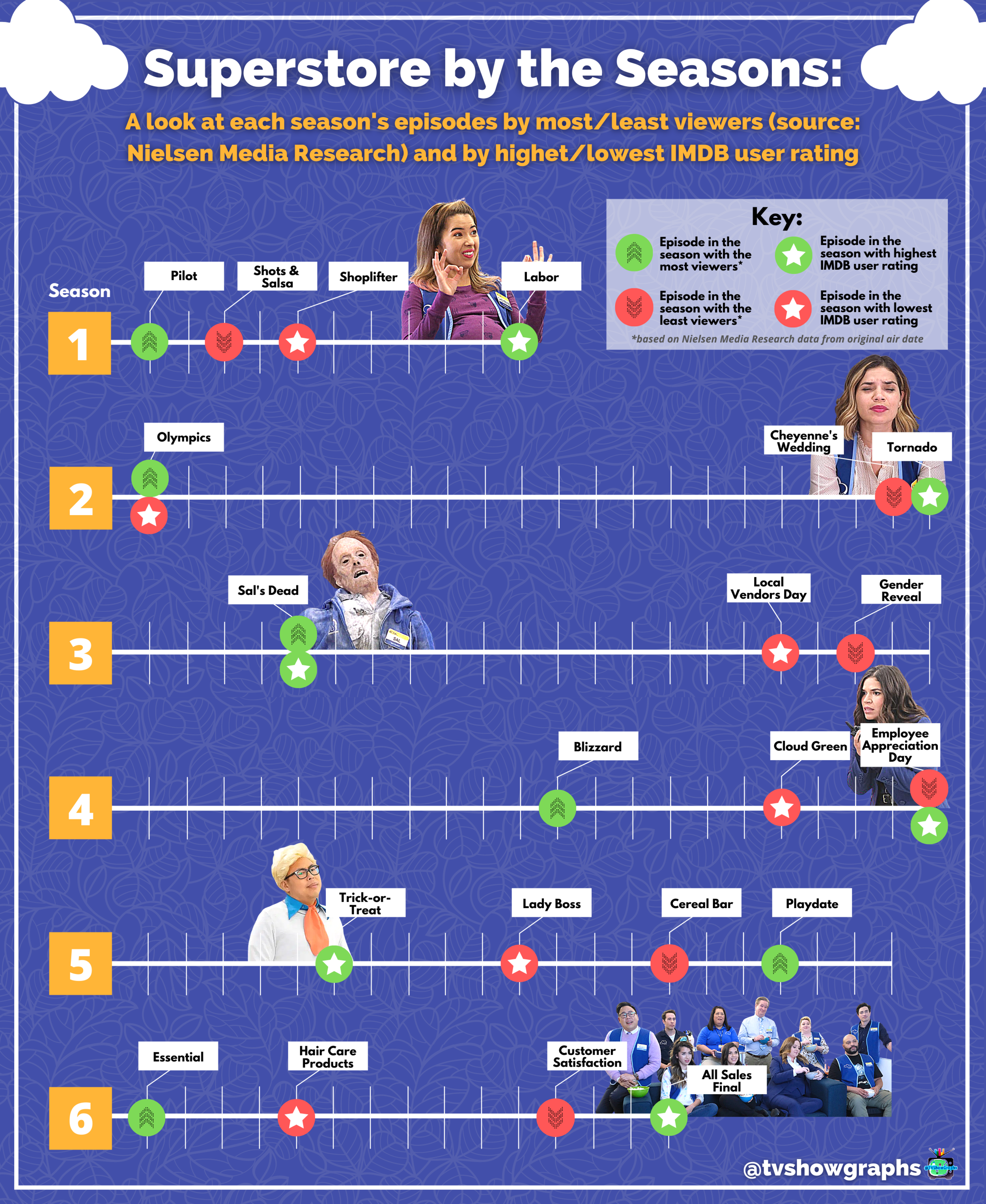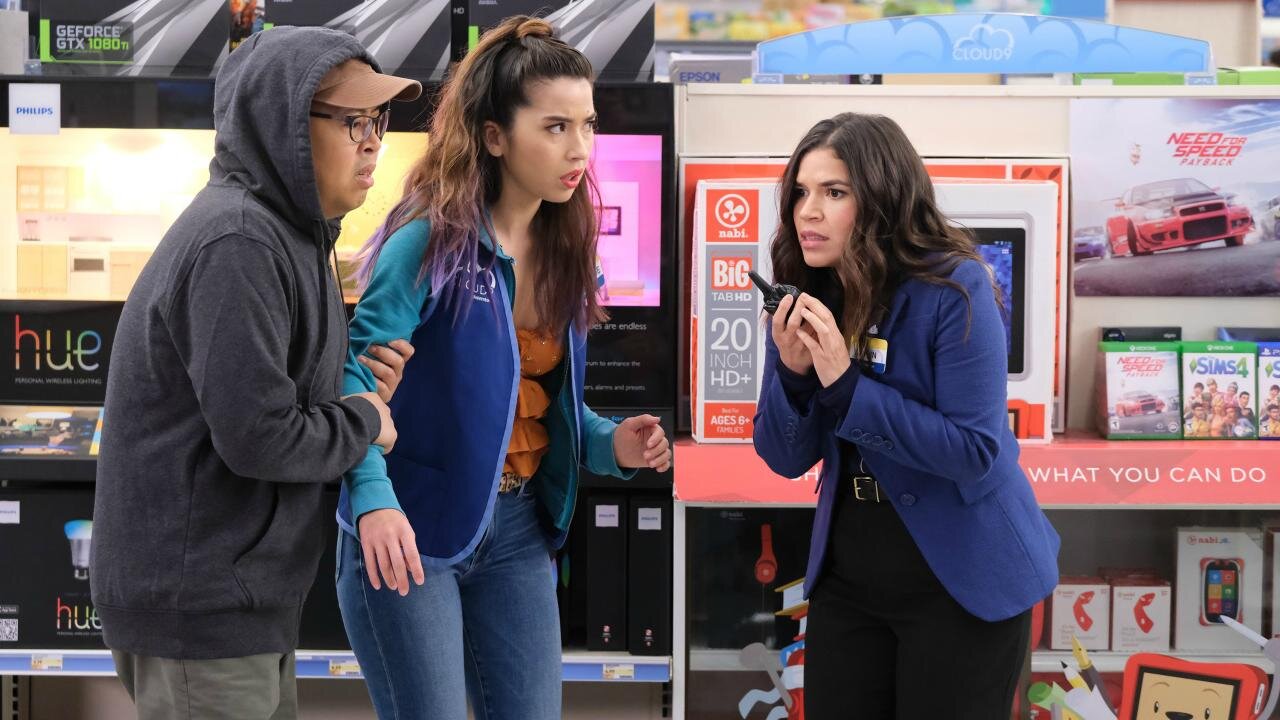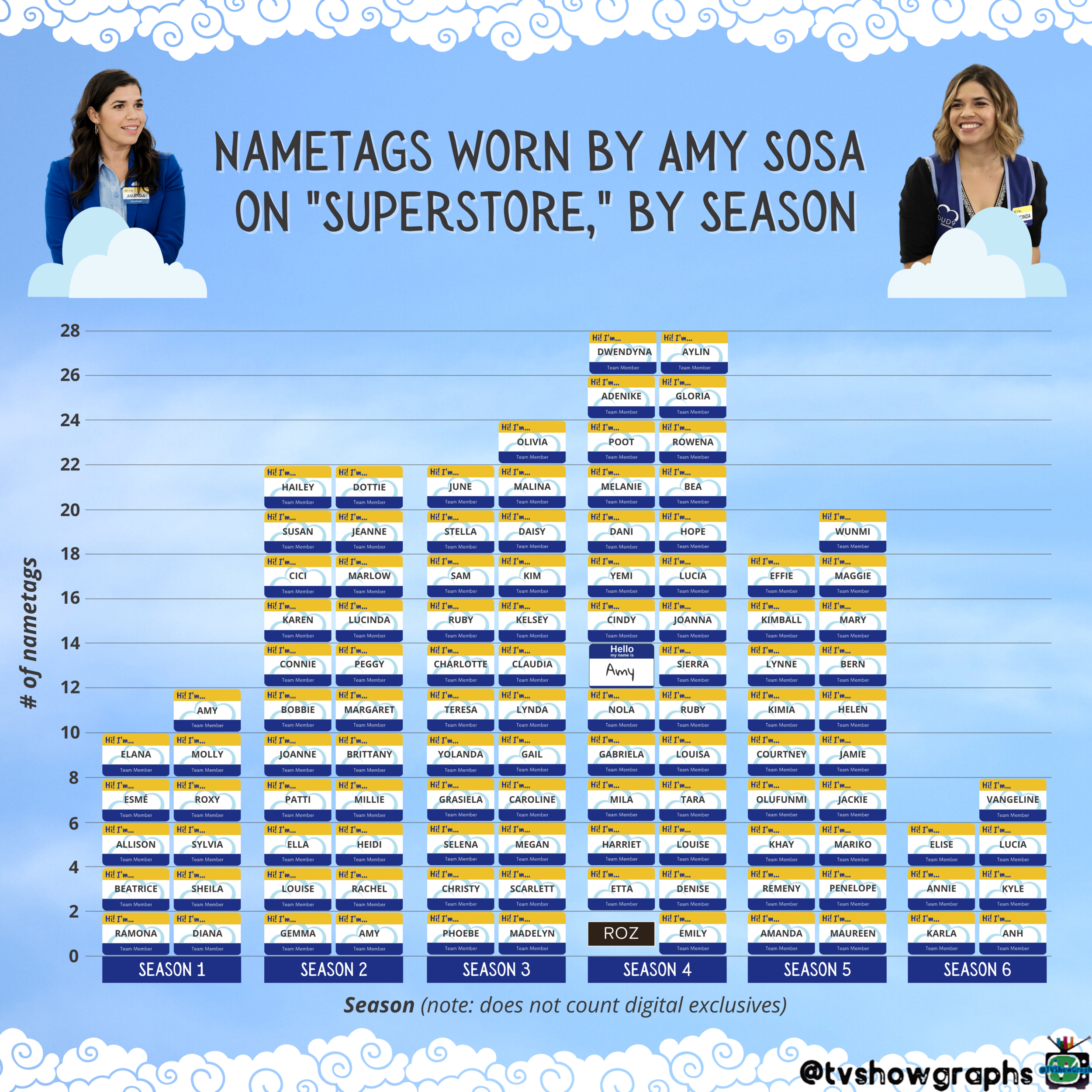Superstore: Giving Me Hope That Maybe Network Sitcoms Aren’t Dead Yet
In some ways, traditional network sitcoms feel a bit like a dying art form. For the first time in 50+ years, when NBC released its fall lineup (for its upcoming 2021 season), there were ZERO half-hour comedies on its schedule. Yes, you read that correctly: zero.
When NBC’s Superstore first premiered in 2015, the situation for network sitcoms wasn’t quite as dire. While the days of must-see-sitcom-television were mostly gone, the 2015-2016 lineup for NBC did include six sitcoms (though many aired in concentrated bursts for just a portion of the year, as opposed to all year long). Of these six sitcoms, three of them lasted only one season and two of them lasted three seasons. Superstore bested them all with a six season run.
What was it about Superstore that allowed it to last far longer than the average network sitcom of the 2010s? While there is no way to know for sure, I can offer up my own personal perspective after having recently binged all six seasons of the show. For some reason, I had written off the show as “just another subpar network sitcom” during its live run, but a few heartfelt recommendations from trusted TV enthusiasts and the show’s buzz on Twitter caught my attention.
There was something about this show that was clearly causing fans to not just watch it, but to immerse themselves in its world. My Twitter feed was filled with fan videos, screencaps, quotes, declarations of the cast’s brilliance, and so on. My personal philosophy is that if anything - whether it be a TV show, a movie, a book, etc. - has enough people that are declaring it as their “absolute favorite thing,” it is worth giving a shot. And thankfully, in the case of Superstore, the show did not disappoint. It was easy to see how fans had been quickly drawn into the character-driven humor of the show as well as its themes of workplace family and finding joy in the ordinary.
After inhaling the show’s six seasons in just over a month, I put together the above chart as a look back at some notable episodes of the series, based on IMDB user ratings data and Nielsen viewership data. Nielsen viewership data is a bit tough to use as a proxy for memorable episodes, as the lowest-viewed episodes wouldn’t necessarily be expected to correspond to the worst episodes (a user doesn’t know how an episode is until they’ve tuned in!). As a case in point, the season four finale, “Employee Appreciation Day” had the lowest viewership of the season despite generally being regarded by fans as one of the series’ best episodes (which is backed up by its very high IMDB user rating as well). I do think that the Nielsen data can be an interesting layer of data to look at though, even if it is not always an indicator of episode quality.
The season 4 finale of Superstore, “Employee Appreciation Day,” had the lowest viewers, but the highest IMDB user rating of all season 4 episodes.
Photo Source: NBC
In just one case, the episode with the highest Nielsen viewership for the season was the same as the episode with the highest IMDB user rating that season: “Sal’s Dead,” the Halloween-themed episode from season 3. Superstore always knew how to put out a great Halloween episode, and whether it was due to marketing, viewer expectations, or pure coincidence, the viewers turned up in full force for the show’s season 3 Halloween special. In all fairness, apparently “full force” for a mediocre-performing network sitcom comes out to just about 4.61 million viewers.
One thing that stood out quite clearly in looking back at user ratings of episodes across the show’s six seasons was how highly regarded the season finales were of Superstore. Of the show’s six seasons, there were only two seasons (season 3 and season 5) in which the season finale was NOT the highest user-rated episode of that season. For both season 3 and season 5, the show’s Halloween-themed episodes were what topped the user ratings. Staying true to its network sitcom DNA, Superstore knew how to deliver terrifically compelling season-enders - so much so that I do not envy those live viewers who had to wait entire summers to see the show’s cliffhangers resolved and how the show moved forward.
One impressive things about Superstore (and something that I don’t always expect from network sitcoms) was the show’s attention to detail; it seamlessly wove recurring gags and callbacks to earlier plotlines into many of its episodes. Among the running jokes on Superstore were random severed feet being found all around the store, poor Glenn’s car getting constantly destroyed, and a very apparent raccoon problem. One of the recurring bits that I loved ever since the show’s pilot episode was the gag around Amy always wearing a nametag that wasn’t her own name. In the pilot episode, she explains the reason for this by saying “I just don't like random strangers using my name like we're buddies” (fair point, Amy).
The nametag bit somewhat surprisingly carries on throughout the entirety of the show. Although it is not mentioned explicitly in most episodes, if you are keeping an eye on Amy’s attire, you’ll clearly notice that she continues to adorn her Cloud 9 uniform with an ever-rotating collection of non-Amy nametags. (Fun fact: There are only three times throughout the show where Amy wears an actual “Amy” nametag: in the last episode of season one when she becomes Assistant Manager; in the season two episode “Strike”; and finally, when she goes to manager training in season four, although this is not an official Cloud 9 nametag).
I thought it might be interesting to take a look at all of the nametags worn by Amy over the show’s six seasons, in graph form:
Season 4 had the most total nametags worn by Amy, including a couple of nametags that weren’t officially from Cloud 9 (i.e. the “Amy” nametag she wears during manager training and the “Roz” nametag she wears when working at the diner).
Apparently many of the nametags have stories behind them, such as the lead writer of a given episode getting to choose the name, often in honor of a family member or friend. Here are a few of the nametags above that have a known source of inspiration:
“Lucia” is the name of America Ferrera’s daughter - this nametag makes an appearance in season 4, and again in season 6
According to fan @CA_sjyk on Reddit, the nametag “Dwendyna” from season 4 came from a fan request at a cast panel in San Francisco. The fan at the panel (Dwendyna) mentioned that their name was so unique that it was never on things like souvenir keychains, mugs, etc., and so she asked Superstore creator and executive producer Justin Spitzer and his team if they would consider putting it on one of Amy’s nametags. They did!
“Remeny” is the name of Colton Dunn’s daughter - this nametag appeared in an episode he wrote
“Effie” is the name of Ben Feldman’s daughter - this nametag appeared in an episode he directed
Lauren Ash shared that the nametag “June” was in honor of her grandmother and that she chose that one for the episode she wrote in season 3. The writers also let her choose another that same season, and she chose “Christy,” in honor of her cousin / podcast co-host.
In reflecting on the six seasons of Superstore, one of the things that was most unique about the show was that it was an example of a great sitcom about blue-collar life. A few years ago, Vulture shared this great piece about the history of blue collar sitcoms and rightfully called out the lack of television shows on the air in the 2010s representing working class individuals and families. Superstore was a bright spot amidst this scarcity of working class representation on TV, as it tackled topics ranging from health care to workers’ unions to ageism in the workplace - always in a way that was genuinely humorous but also grounded in truth.
Superstore was a sitcom about blue collar life and challenges faced by lower-middle class America, brought to life in a lovingly-crafted and non-preachy way. It was also just a funny, damn good sitcom.
As the television landscape continues to gravitate away from network sitcoms, it is hard to say for sure what role these traditional network comedies will play in TV-watching dynamics five or ten years from now, or even how we’ll be consuming our comedy content at that point in time. In the meantime though, Superstore has given me hope that network sitcoms still have a breath or two life left in them.



